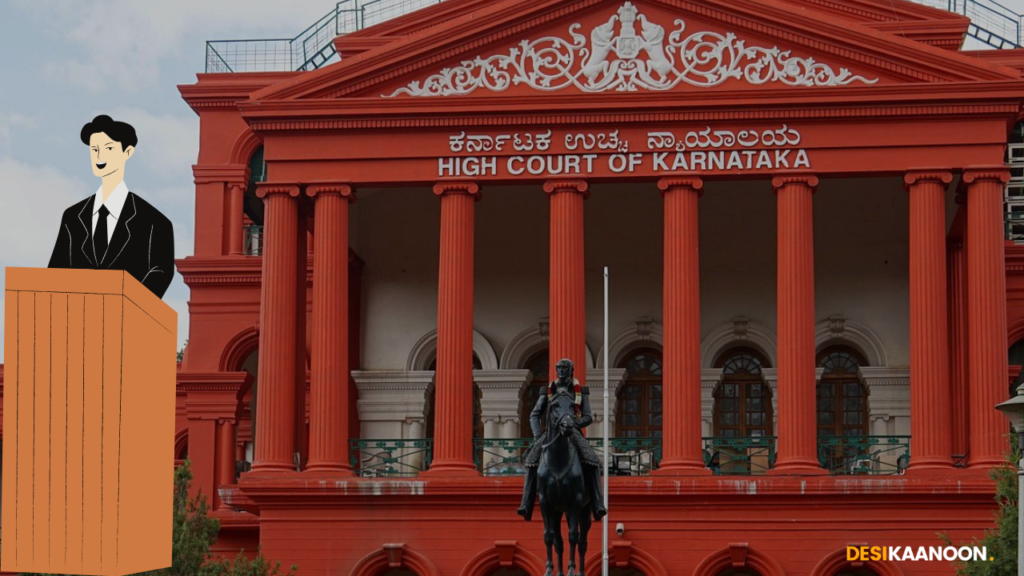Aastha Pareek
In a significant judgment, the Karnataka High Court ruled that the Chairman of the Bar Council of India (BCI) does not have the authority to issue gag orders restraining advocates from making public statements or discussing matters of public interest. This ruling comes as a boost to the freedom of speech for legal professionals, reaffirming the right of advocates to express their opinions within constitutional limits.
The case arose when certain advocates raised their voices on social media and public forums against judicial misconduct and corruption, attracting the attention of the BCI. The BCI Chairman attempted to restrict these advocates by issuing directives that barred them from making further public comments, labeling such expressions as potentially damaging to the image of the judiciary. The gag orders were met with resistance from the legal community, leading to a challenge before the Karnataka High Court.
A division bench of the Karnataka High Court, presided over by Chief Justice Prasanna B. Varale, found that the BCI Chairman overstepped his legal authority by imposing such gag orders. The court noted that while the Bar Council has disciplinary control over advocates, the freedom of speech is a constitutionally protected right under Article 19(1)(a) of the Indian Constitution, and any restrictions on this right must be narrowly tailored and clearly justified under Article 19(2).
The judgment emphasized that the BCI is primarily tasked with regulating professional conduct, but this does not extend to infringing upon advocates’ right to comment on matters of public interest, especially when those matters concern the judiciary itself. The court further clarified that professional criticism aimed at enhancing transparency and accountability cannot be stifled without valid legal grounds.
This ruling is seen as a landmark victory for advocates and legal commentators. It reinforces the principle that legal professionals, while bound by ethical standards, are not exempt from exercising their freedom of expression on issues of public importance. The judgment strengthens the legal fraternity’s role in upholding the integrity of the judiciary and promoting transparency.
Several legal experts have welcomed the judgment, noting that it strikes a balance between maintaining the dignity of the judiciary and protecting the fundamental rights of advocates. The ruling also serves as a reminder that regulating the conduct of advocates must always align with constitutional principles.h
The Karnataka High Court’s decision affirms that the BCI Chairman lacks the power to issue gag orders that limit advocates’ rights to free expression. This judgment is expected to have a broad impact on how the legal profession is regulated, encouraging greater accountability and transparency while protecting the rights of advocates to speak on matters of public interest.

